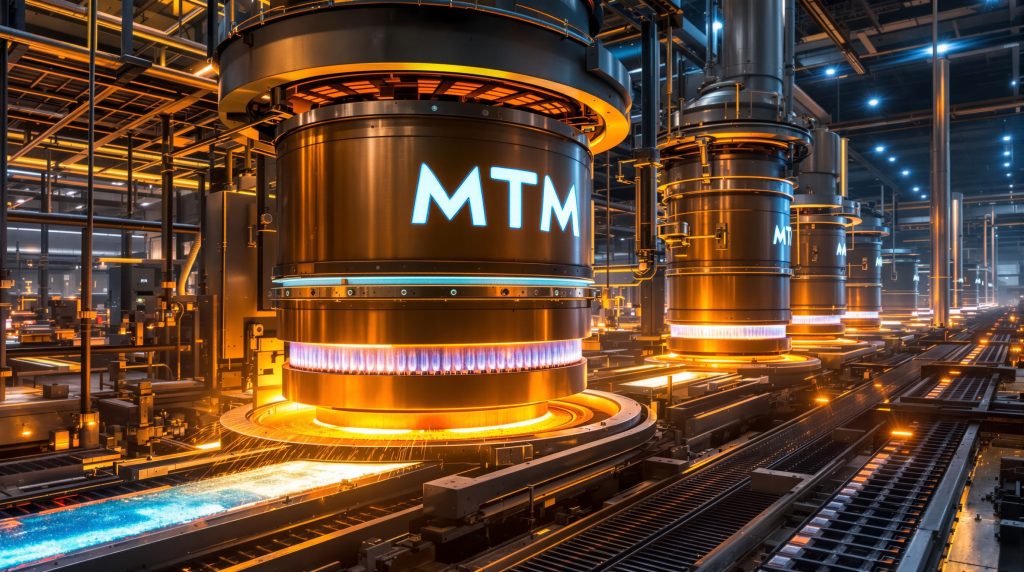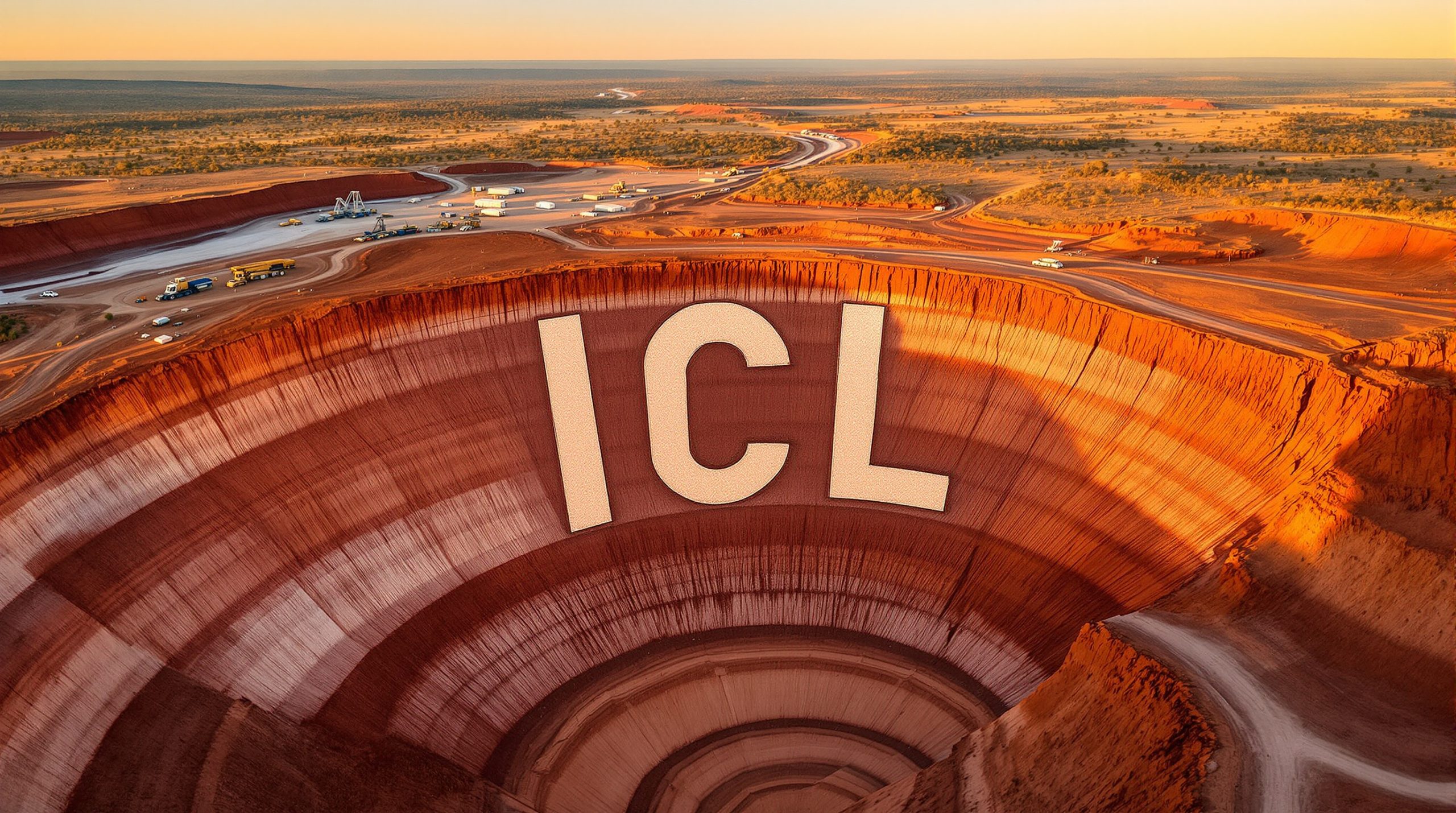Metallium's Revolutionary REE Technology Could Break China's Rare Earth Refining Monopoly
Metallium Limited (ASX: MTM; OTCQX: MTMCF) has unveiled a major strategic advancement in rare earth element (REE) processing that could significantly reduce Western dependence on Chinese refining capacity. The company's patented Flash Joule Heating (FJH) technology has demonstrated breakthrough capabilities in upgrading REE feedstocks, with a new collaboration aimed at potentially bypassing traditional separation methods entirely.
Game-Changing Technology Addresses Critical Supply Chain Vulnerability
Metallium's innovative approach comes at a crucial moment for global supply chains. China currently controls over 90% of global rare earth refining, a dominance that has created severe vulnerabilities for Western manufacturers. In June 2025, Chinese restrictions on NdFeB magnet alloy exports forced automakers including Ford and Suzuki to suspend production, highlighting the urgency for alternative refining solutions.
The company's FJH technology offers a dual solution to this challenge:
-
Immediate improvement to existing processes: FJH can upgrade REE feedstocks into solvent extraction (SX)-ready products, removing unfavourable elements while enriching high-value magnet metals. This enhances current refining methods without relying on Chinese toll processing.
-
Future potential to bypass traditional methods: Through a new collaboration with Rice University, Metallium is investigating whether FJH can directly separate individual REEs, potentially eliminating the need for large, expensive solvent extraction plants.
"FJH has already demonstrated its ability to upgrade multiple REE feedstocks into SX-ready products, giving Western supply chains a midstream solution today," said Michael Walshe, Managing Director & CEO of Metallium. "In parallel, our Rice University collaboration is tackling the next frontier: using FJH to separate individual REEs directly, potentially bypassing solvent extraction."
Why This Matters for Rare Earth Supply Chains
Rare earth elements are essential components in electric vehicles, wind turbines, defence systems, and electronics. However, the current separation process relies on solvent extraction – enormous industrial plants with very large footprints, high capital and operating costs, and commissioning timelines that stretch for years.
The strategic importance of Metallium's technology is highlighted by recent U.S. government initiatives, including nearly $1 billion in new Department of Energy funding dedicated to building domestic REE refining capacity and supply chain security.
"Metallium's FJH technology is the first credible midstream solution I've seen that improves existing flowsheets today while opening the door to entirely new separation methods. This is exactly the kind of innovation needed to reduce reliance on China," stated Tony Hadley, Non-Executive Director with over 20 years in rare earth metallurgy.
Proven Results Across Multiple Feedstocks
Metallium has already demonstrated FJH's effectiveness with various rare earth feedstocks:
| Feedstock | FJH Performance Results |
|---|---|
| Monazite concentrate | 93% REE conversion into >90% mixed REE chloride in one flash |
| Mixed Rare Earth Carbonate (MREC) | >80% La/Ce removed, high-value magnet REEs enriched, 81% terbium recovered |
| Future testing | Planned expansion to hard-rock ores, SEG intermediates, and other challenging sources |
The company's MREC upgrading capability is particularly significant. MREC is an intermediate product containing 40-60% total rare earth oxides, produced after initial ore processing but before the costly separation stage. Currently, China is the only large-scale, commercially viable buyer and refiner of MREC, creating a dependency problem for Western developers.
Metallium's FJH technology enables developers to upgrade MREC by selectively removing contaminants and rejecting low-value REEs while enriching valuable magnet REEs. This creates a new pathway for non-Chinese developers to monetise REEs without building their own separation plants or selling to China.
Understanding Solvent Extraction: The Current Bottleneck
Solvent extraction (SX) represents the primary bottleneck in rare earth refining outside China. This process involves hundreds or even thousands of mixer-settler stages, requiring massive capital investment, years to reach equilibrium operation, and significant ongoing operational costs.
The dominance of Chinese SX capacity means Western projects have historically been dependent on Chinese refineries, making any innovation that reduces this reliance strategically transformative. Metallium's technology addresses this vulnerability directly by providing a more elegant and efficient pathway to high-value intermediates.
Understanding Rare Earth Elements
Rare earth elements (REEs) are a group of 17 metallic elements with similar properties that are essential components in modern technologies. Despite their name, most REEs are relatively abundant in the Earth's crust, but they typically occur together and are difficult to separate due to their similar chemical properties.
REEs are classified into two main categories:
-
Light Rare Earth Elements (LREEs): Including lanthanum (La), cerium (Ce), praseodymium (Pr), neodymium (Nd), promethium (Pm), and samarium (Sm). These tend to be more abundant and less valuable.
-
Heavy Rare Earth Elements (HREEs): Including europium (Eu), gadolinium (Gd), terbium (Tb), dysprosium (Dy), holmium (Ho), erbium (Er), thulium (Tm), ytterbium (Yb), and lutetium (Lu), plus yttrium (Y). These are typically scarcer and more valuable.
Of particular economic importance are the "magnet REEs" – neodymium (Nd), praseodymium (Pr), dysprosium (Dy), and terbium (Tb) – which are crucial for producing powerful permanent magnets used in electric vehicles, wind turbines, and defence systems.
REEs are traded as oxides (REOs), with the first step in the supply chain typically being mixed rare earth carbonate (MREC), an intermediate product containing all REEs that requires further refining and separation.
Rice University Collaboration: Pushing Boundaries
Metallium's new collaboration with Rice University represents a significant step toward potential breakthroughs in rare earth separation. The company is investing $379,000 over 12 months to support research led by Dr. James Tour, focusing on selectively separating valuable REEs including Nd, Pr, Dy, Tb, Y, and Eu using flash processes.
The research program aims to determine whether FJH can perform direct separation of REEs, potentially removing large parts of the highly capital- and energy-intensive SX process. Metallium retains first rights to new patents emerging from this work, strengthening its intellectual property position while leveraging U.S. academic expertise to qualify for DOE-backed demonstration programs.
Why Investors Should Follow Metallium
Metallium presents a compelling investment case through its dual-track strategy:
-
Near-term revenue potential: The company's technology can immediately improve existing flowsheets, creating licensing and partnership opportunities across multiple feedstock types including mining ores, industrial residues, mine tailings, and magnet scrap.
-
Long-term disruptive potential: If successful in developing direct REE separation, Metallium could fundamentally transform the rare earth supply chain, potentially competing directly with China's refining capability and supporting U.S. and allied independence in magnet metals.
The company's FJH technology platform extends beyond rare earths to other critical metals including gallium, germanium, indium, gold, and copper. This diversified exposure positions Metallium as a scalable leader in clean-metals processing with multiple revenue streams.
With the first commercial site already secured in Texas and alignment with U.S. strategic supply chain objectives, Metallium is well-positioned to capitalise on growing demand for domestic critical mineral processing capacity while addressing one of the most significant vulnerabilities in Western supply chains.
As global rare earth demand continues to grow, driven by clean energy transitions and electrification, Metallium's technology offers a potentially transformative solution to one of the industry's most persistent challenges.
Are You Ready to Capitalise on the Rare Earth Revolution?
Metallium's game-changing Flash Joule Heating technology stands at the forefront of reducing Western dependence on Chinese rare earth refining. With proven results across multiple feedstocks and strategic collaborations pushing the boundaries of what's possible in REE processing, this could represent a significant investment opportunity in the critical minerals sector. To learn more about Metallium's revolutionary technology and how you could potentially benefit from their innovations in the rare earth supply chain, visit their investor hub today.




